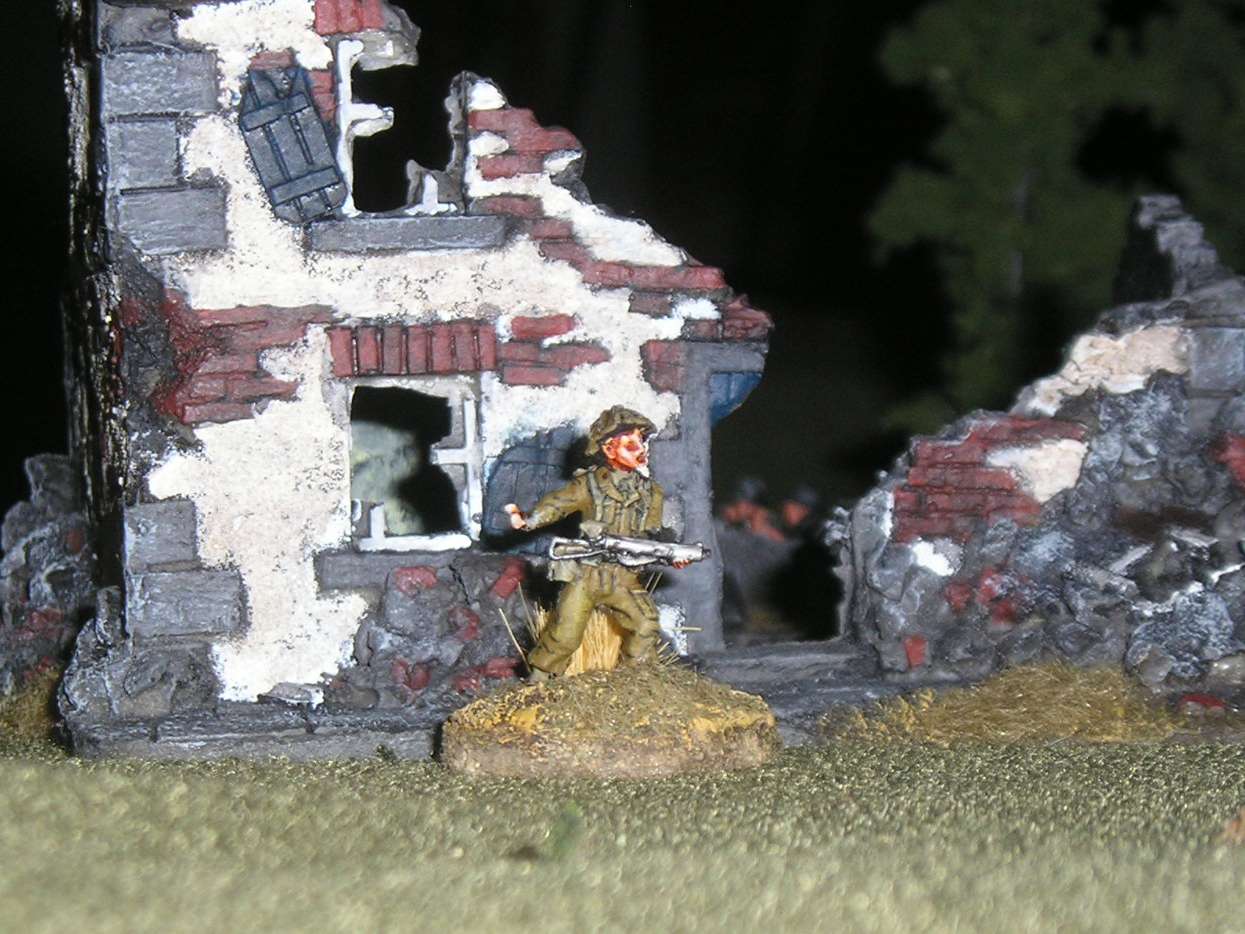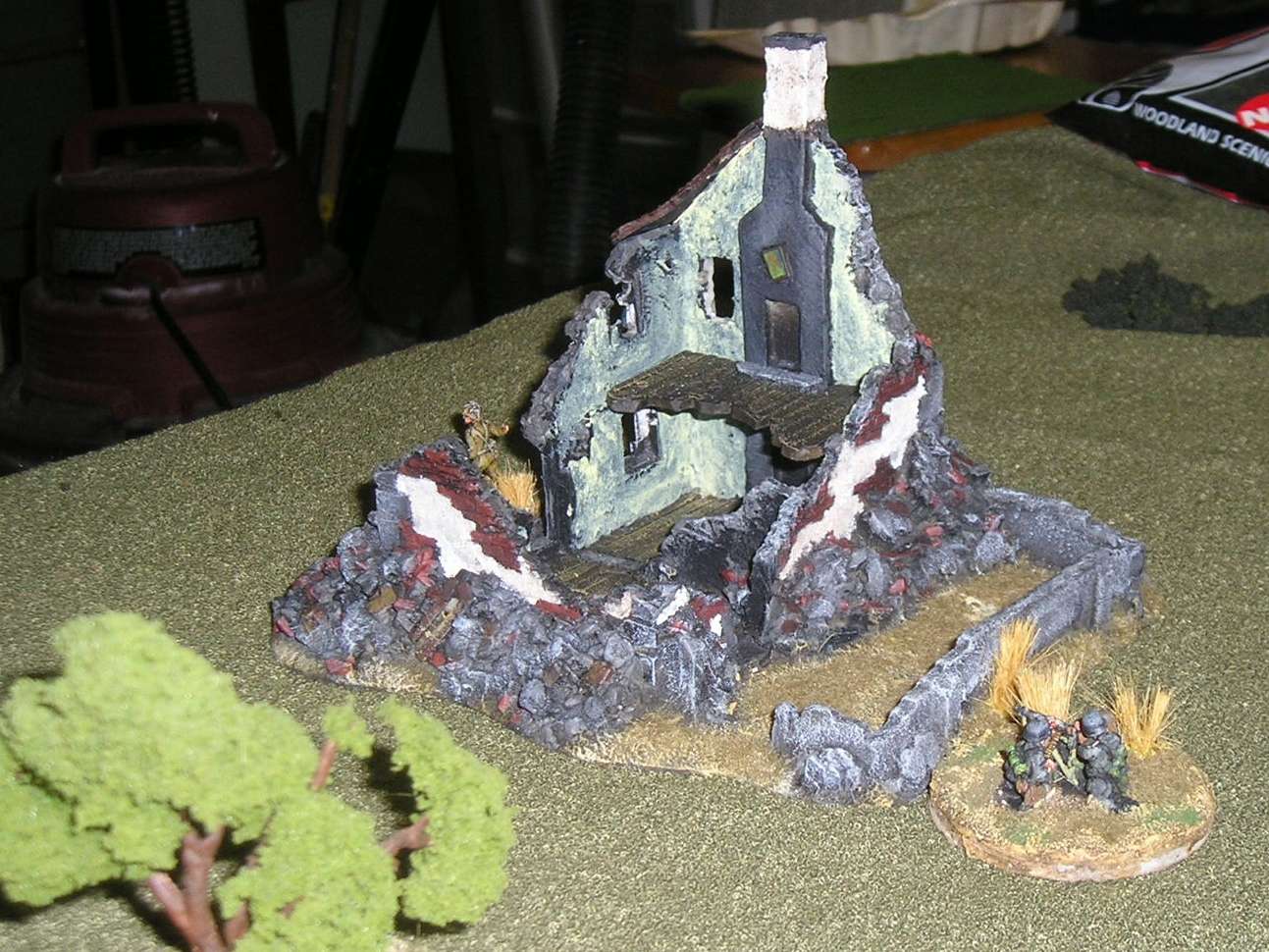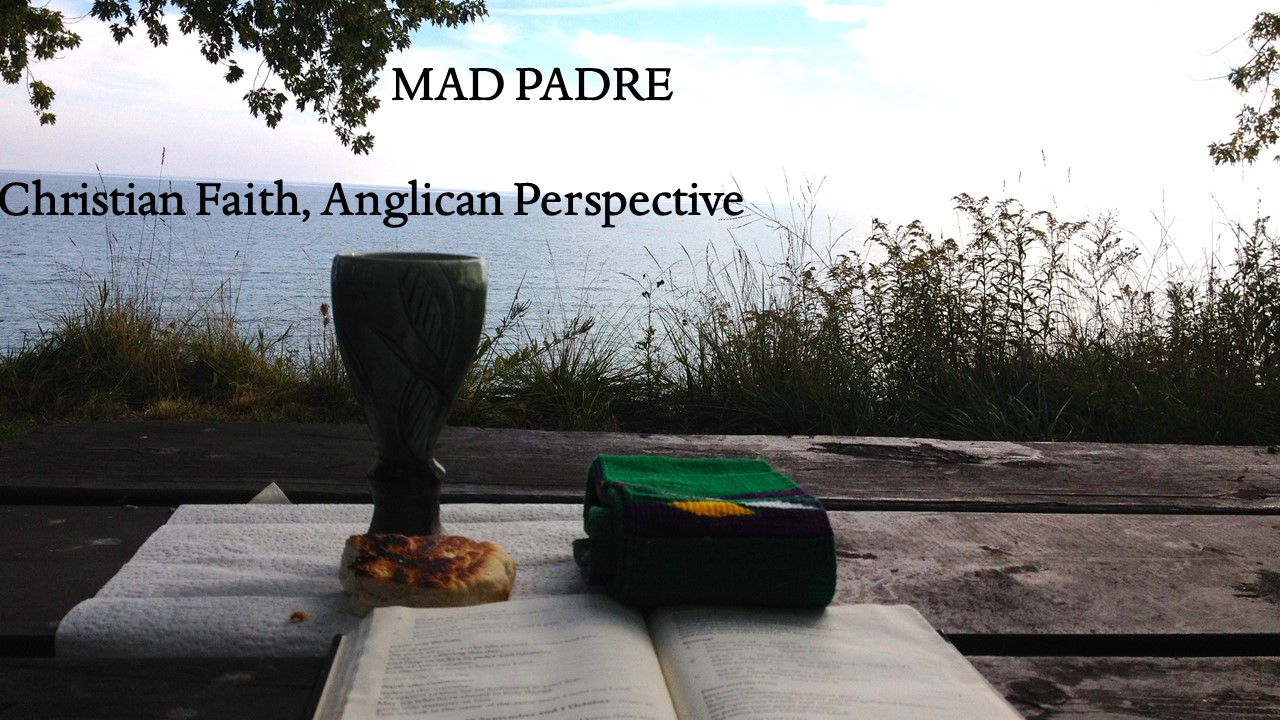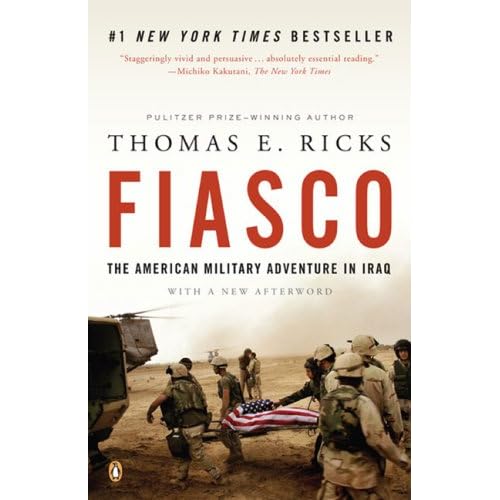Preached at Grace Church, Ilderton, and St. George’s, Middlesex Centre 25 November, 2007
“He is the image of the invisible God, the firstborn of all creation; for in him all things in heaven and on earth were created, things visible and invisible, whether thrones or dominions or rulers or powers – all things have been created through him and for him.” (Colossians 1:15-16) Today in the life of the church is called The Reign of Christ. It’s the last Sunday before we enter the season of Advent, and it invites us to consider an aspect of the identity of Christ that we don’t always consider. We can think of Jesus in many ways as the good shepherd, as the wise rabbi, the friend we eat with, the baby in the manger, the personal saviour, but today we think about Jesus as King and Lord. Today invites us to consider Jesus in light of the qualities we associate with kings, such as authority, majesty, power. In the mighty
opening of his letter to the Colossian church this morning, there is no doubt in St. Paul’s mind that Jesus is king and lord of absolutely everything on heaven and on earth. So today is a day for asking ourselves – what is Jesus lord and king of in my life?
What is a lord and king for me? I’ve never met a king in my own life. Perhaps some of you have, but I never did. I did however meet a queen. Well, actually, I saw a queen, during one of Queen Elizabeth II’s visits to Canada in the 1980s. I suspect several of you can remember a royal visit as well, and have stories of your own experiences. In my case, it was Victoria in British Columbia, and with several of my student friends we went down to the inner harbour to see the Queen leave on the royal yacht Britannia. There was a large crowd, and the Queen’s ship was brilliantly lit up – the Britannia was a beautiful ship, painted in black and white with a sharp bow and a graceful superstructure and two elegant masts – a very appropriate ship for a monarch.
The Queen stood at the top of the gangplank and waved to us, and of course we all waved back, and we cheered, and I think we may even have sung God Save the Queen spontaneously. Finally the gangplank was withdrawn and the ship got under way, but my friends and I weren’t willing to let it end at that. We piled into a little car and drove along the waterfront, as far as we could, until finally we got out and watched Britannia, a brilliant point of light on the dark ocean, until finally she vanished into the night. The excitement of that night was quite surprising to me, because whereas my friends were English and quite the monarchists, I was rather lefty and rather rude about the Queen, up till then. But that night, when her ship finally was lost to our sight, the world seemed a little less magical, and we were left to go back to our ordinary lives.
Surely one reason that some of us want to have kings and queens is the sense of majesty and grace that they bring to an otherwise ordinary world. Even though Queen Elizabeth is an ordinary woman with a handbag and little dogs, she is set apart. If you saw last year’s film
The Queen with Helen Mirren, you may remember the scene at the beginning after Tony Blair has just been elected as Prime Minister of the UK. He has to go to Buckingham Palace to receive the Queen’s permission to form a new government, and as he climbs the stairs to meet her, a royal aide instructs him how to behave when he enters the royal “presence”. Presence is exactly what it is, and Blair’s ensuing nervousness is something we can all relate to. Here is a woman born to power, with a sense of centuries of privilege and responsibility, whose ancestors had the power of life and death over others.
The point of the film The Queen, however, is that power and dignity in royals aren’t enough for us. As people, we also need to relate to royalty, to have a sense that despite their power and privilege they are still interested in us and sympathetic to us. That’s why the most popular part of any royal visit is the walkabout, when the royals meet perfect strangers and yet manage to appear friendly and gracious. We want to know that kings and queens stand with us rather than over us. Perhaps the best illustration of this from history if the blitz of 1940-41, when Londoners could see the royal flag over Buckingham Palace and know that the royal family was home, sharing the same dangers and the same rations as ordinary folks. That’s the contract with our royals, that we are prepared to put them above us if they are willing to serve their people and share their people’s lives.
Finally, and most importantly, we want royals to be role models, to exemplify character, dignity, and duty. It’s a pretty thankless job, to be sure, and these expectations may be unfair, but what drives the cheap tabloid journalism is a sense that the royals are held to a high standard. Last week the Archbishop of Canterbury spoke to the royals’ function as role models when
he preached at a service celebrating the Diamond Wedding Anniversary of Queen Elizabeth and Prince Philip. The Archbishop spoke about the public nature of the married partnership of these two particular people, and of how they have kept the promises of their partnership to the commonwealth but more importantly, to one another. Even though our hopes for fidelity and commitment are frequently shattered, this marriage of Queen and Royal Consort says what any long marriage can say about us.
"Here is a relationship which proclaims something profound and exhilarating about our humanity: a human being is worth spending a lifetime on, a lifetime of loving attention; and also a human being is capable of giving a lifetime’s attention. Humanity is shown to be at once immeasurably worthwhile and also free to reflect the gift of God’s eternal love in its own relationships that shares the character of what happens when God through Jesus Christ establishes the lasting sign of his love that is the community of the church."
As with most of Rowan Williams’ statements, this one is dense but worth thinking about. What the Archbishop says about the quality of the royal marriage of Elizabeth and Philip and how it reflects “the gift of God’s eternal love” is true of the monarchy itself. At its best, we see in the monarchy something of the reign of Christ the King.
Think of the shapes that power in today’s world can take. A dictator arming himself with terrible weapons. A podium full of unsmiling and unelected men in suits or uniforms, protected by secret police. A man in a suit emerging from a helicopter, with an aide carrying a suitcase that can start the last and ultimate war. And then there is a small woman with a handbag and little dogs, seemingly immune to fatigue, who has spent her life being interested in the lives and dignity of her subjects. That is a different kind of power. As Rowan Williams suggests, it is a power that comes from relationship and from community, rather than a power that comes from the barrel of a gun.
Our Lord Jesus Christ did not come to earth to have power as the world understood it. Others thought he might want to be a king. Pilate looked at the whipped and isolated figure of Jesus and mockingly said “behold the man!”, and when the crucified him they Pilate put a message above him that said “Jesus Christ, King of the Jews”, just in case anyone else wanted to take away some of Rome’s power. But Jesus didn’t come to earth to be such a king.
Jesus came to earth and died on the cross because God in his infinite love believes that all of his creations, all of humanity, deserve dignity. God believes that all of us deserve his love and attention. Paul understands this perfectly in the reading from Colossians we heard this morning. Yes, says Paul, Jesus is the same as God. Yes, he carries all the “fullness of God”, yes he was present at creation, and yes, he is lord of “all things in heaven and on earth”. Yes, he is the king of kings and lord of lords, with more power and majesty than we could ever imagine.
What does Jesus do with this power? He loves. He heals. He teaches. He takes trembling hands and lifts them up. He forgives. He banishes shame and self-doubt. He brings the hungry in from the cold and feeds them. He stands with people rather than over them. As Paul says, “He has rescued us from the power of darkness and transferred us into the kingdom of his beloved Son, in who we have redemption, the forgiveness of sins” (Col 1:13-14). This is power that shares, that gives of itself to give life, that creates community. As Rowan Williams said of the marriage of Elizabeth and Philip, it is what happens when we pay attention to another person, declaring them to be worthwhile. This insight helps explain another Christian metaphor which sees Christ as the Church’s bridegroom – the two images, Christ as Lord and Christ as Bridegroom, thus complementing and reinforcing one another. In neither aspect does Christ seek to dominate and exploit, but rather, through the investment of his attention and faithfulness and love, he builds up, creates, renews.
Is Jesus King? You better believe it. He’s my boss and your boss, he’s in charge of wardens and priests and organists and bishops and archbishops. Is he to be feared? Yes, by those who seek to exploit and create fear in others. Is he to be welcomed? Yes, if we want to share in his light and love. Does he have expectations of us? Yes, and if you want to remind yourself of them, read the Baptismal Covenant in the BAS. Does the world need Jesus? Yes, because the world is spiritually hungry and the world has distorted and meager understandings of power.
So today is day for thinking about power and authority and majesty. It’s a day for us to think about how we understand and seek power, in the church, in our homes, in our workplaces, in our hearts. It’s a day to be thankful that we are subjects of a king who shares with us “in the inheritance of the saints in the light”. How will we share his love and power with those who are still in the darkness?




